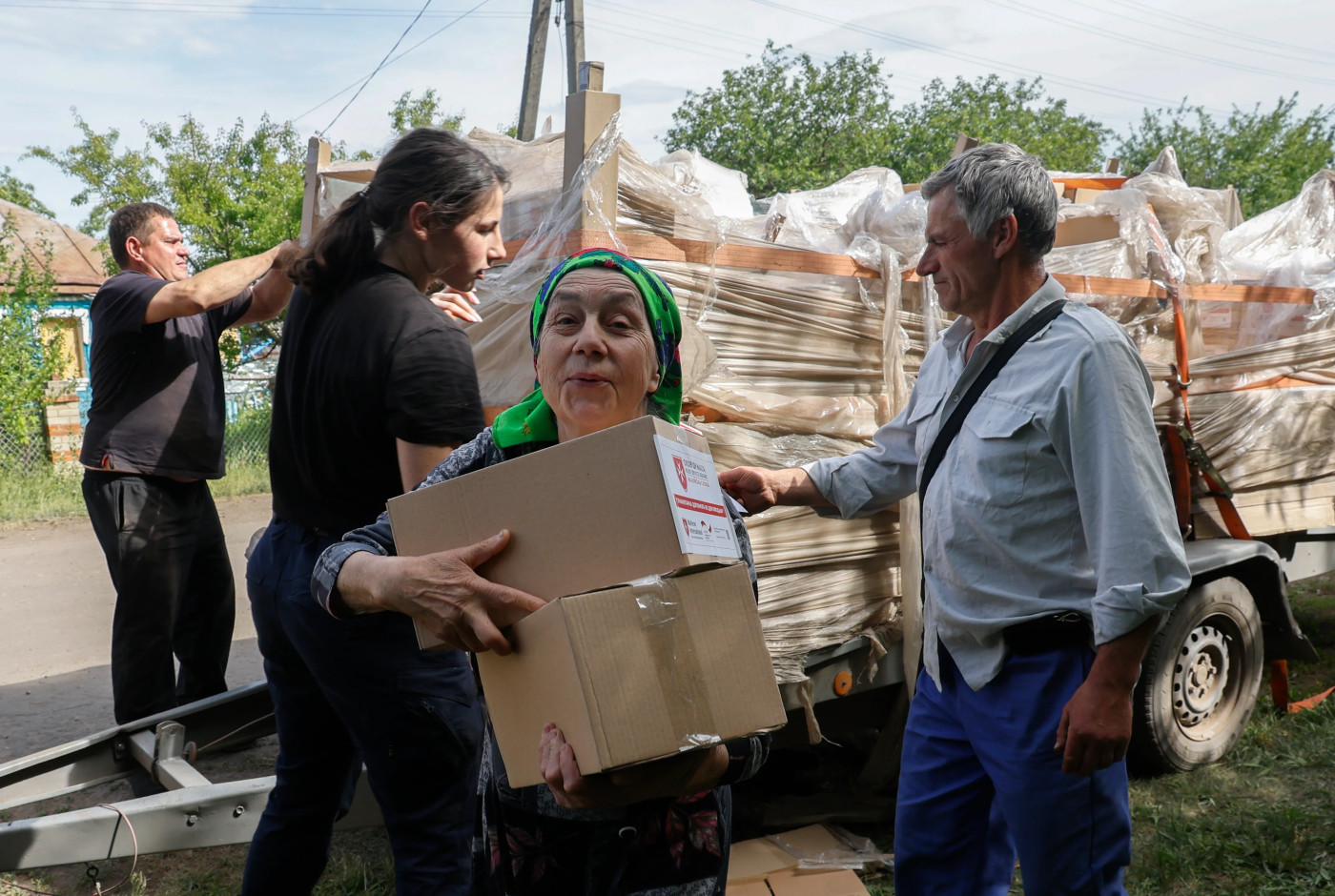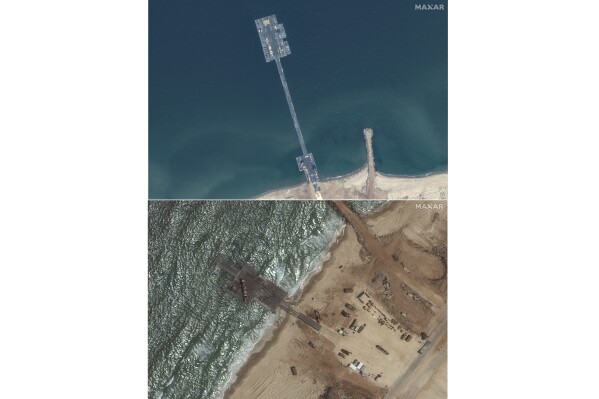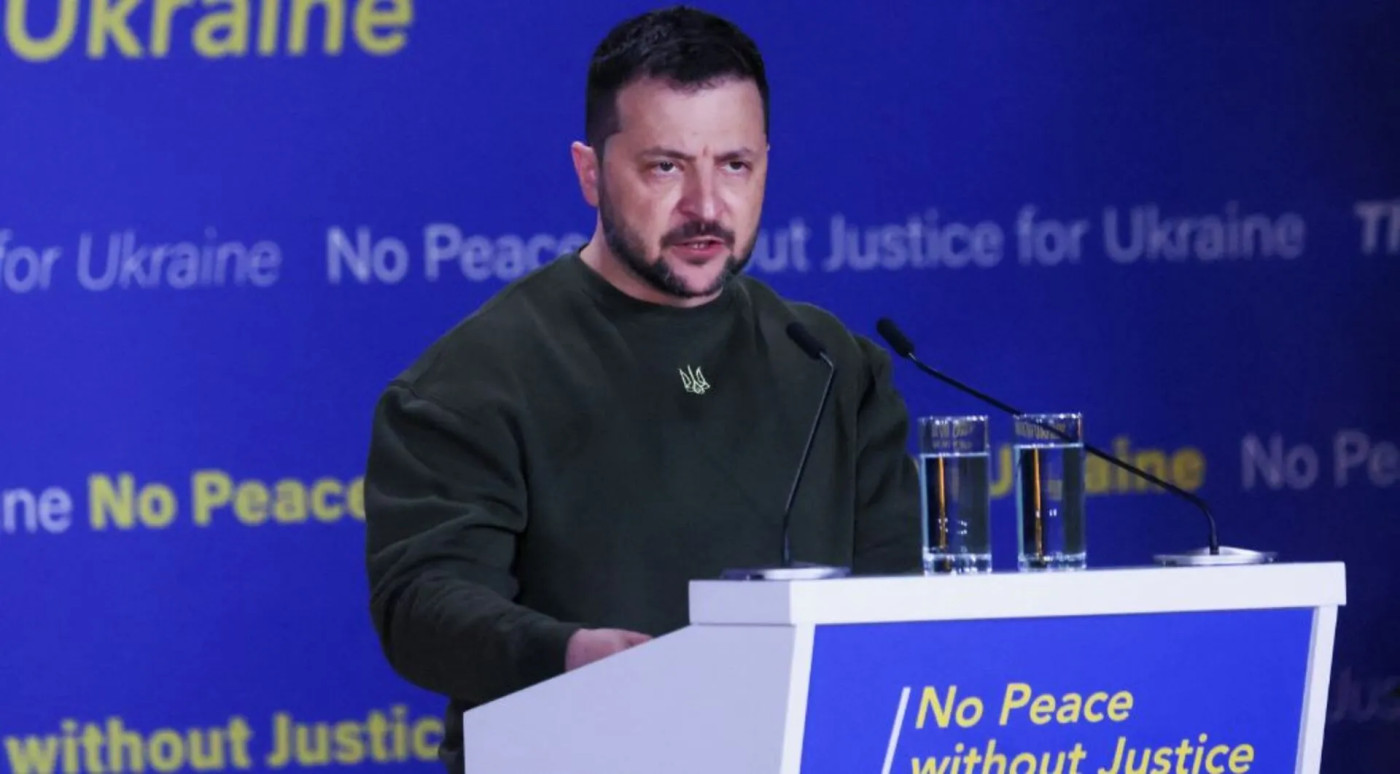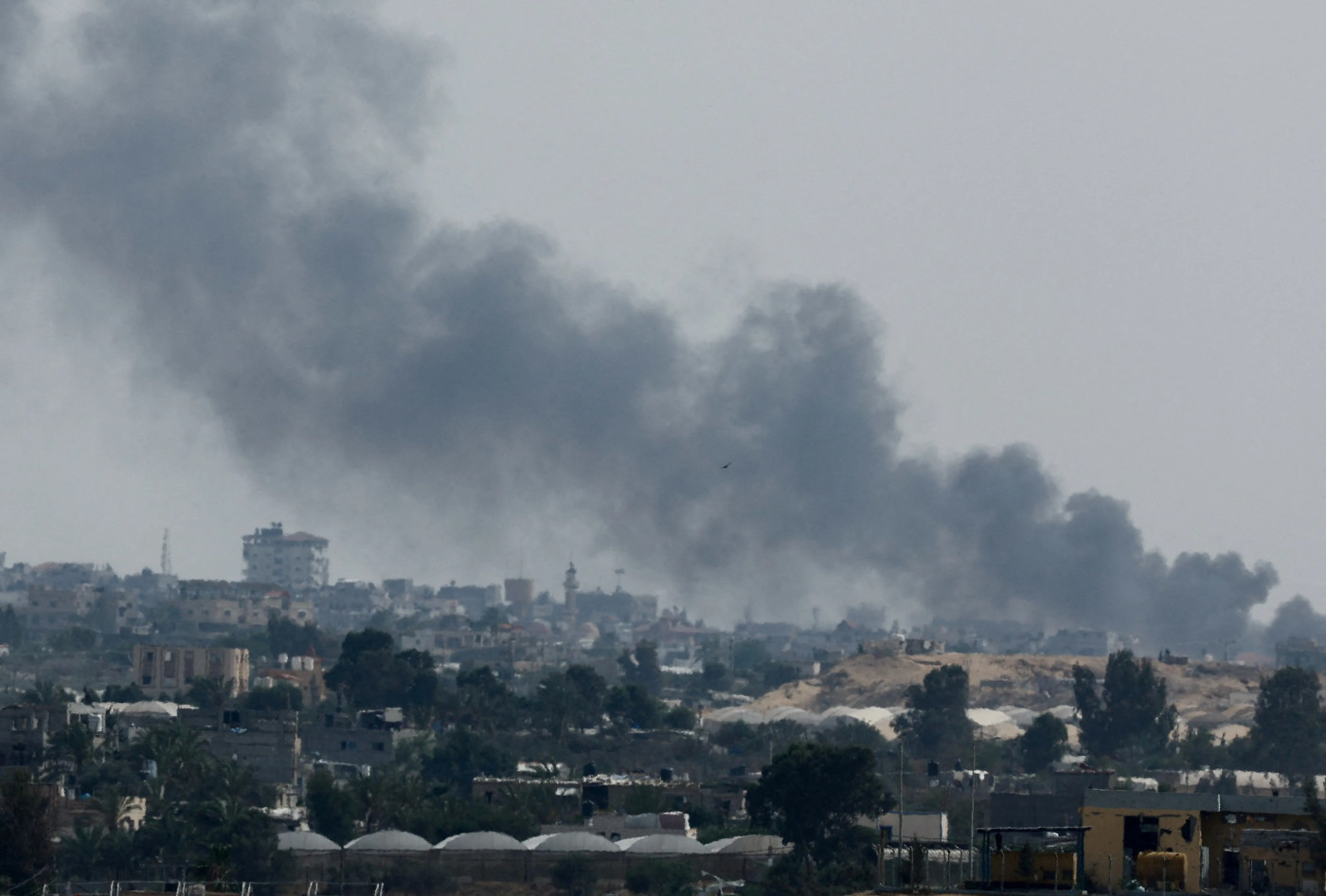Russia Trying to 'Take Advantage' of US Ukraine Aid Timing: ISW
The Russian military is attempting to "take advantage" of delays in U.S. aid deliveries to Ukraine reaching the war's frontline, according to the Institute for the Study of War (ISW).
An ISW report published on Wednesday noted that Mykhailo Podolyak, an adviser in the office of Ukrainian President Volodymyr Zelensky, had told Bloomberg in an interview published on the same day that the recently approved American military aid was taking "weeks" to reach "critical volumes" where they are needed most.
"At the moment, Russian troops have the absolute advantage in shells, missiles, etc," Podolyak told Bloomberg. "They will try to press along the frontline to advance. And then they may try to force the pro-Ukrainian coalition to accept unacceptable terms."
ISW, a U.S.-based think tank that regularly releases assessments of the Russia-Ukraine war, argued that Russia's attempt to "freeze the current frontline" amid the aid stall would be particularly "advantageous" to Moscow's war effort.
"Podolyak warned that Russia may be trying to force Ukraine and its allies to freeze the current frontline—a situation that ISW has long assessed would be advantageous to Russia by giving the Russian military time to reconstitute and prepare for renewed aggression against Ukraine," the ISW report reads.
"Additional Western military assistance will also likely take time to reach the front lines and to be properly integrated into Ukrainian frontline troop formations," it continues.
Newsweek reached out for comment to the Ukrainian military via email and the U.S. Department of State via online press contact form on Wednesday night.
Russia made several key advances in its more than two-year invasion of Ukraine during the early months of this year, when military aid to Kyiv from Western allies, particularly the U.S., slowed significantly.
While an aid package worth over $61 billion was finally passed by Congress and signed into law by President Joe Biden in April, military experts and Ukrainian officials have continued to express concerns that the aid is being delivered too slowly.
During an interview with Reuters last week, Zelensky pleaded with Western allies to make quicker decisions and speed up their deliveries of aid. Several of Ukraine's European NATO allies, such as Sweden and Belgium, have recently committed to sending more aid to Kyiv.
"Every decision to which we, then later everyone together, comes to is late by around one year," Zelensky said. "But it is what it is: one big step forward, but before that two steps back. So we need to change the paradigm a little bit."
Zelensky also said that the Ukrainian Air Force, which has relied on an aging fleet of Soviet-era MiG aircraft during the war, needed allies to supply around 130 U.S.-made F-16s to counter Russia's air superiority.
While several European NATO nations have pledged to give Ukraine a far smaller number of jets, deliveries have repeatedly been delayed, prompting some experts to question the effectiveness of the aid.
William Reno, professor and chair of the political science department at Northwestern University, told Newsweek earlier this month that delivery of the jets was unlikely to come at the "optimal time," drawing a parallel with Kyiv receiving Western tanks after its fall 2022 counteroffensive.
"There's a tendency for weapon systems to arrive after the point at which they would have been most effective," said Reno. "There was an optimal time for tanks... They were put to use when they arrived in 2023, but by then began to encounter drone attacks that exploited vulnerabilities in their armor and thus limited their utility."
"F-16s encounter a similar situation," he added. "The length of the decision, training and delivery process have given Russian forces time to adapt air defenses, particularly as both sides settled into defensive positions."
Disclaimer: The copyright of this article belongs to the original author. Reposting this article is solely for the purpose of information dissemination and does not constitute any investment advice. If there is any infringement, please contact us immediately. We will make corrections or deletions as necessary. Thank you.



